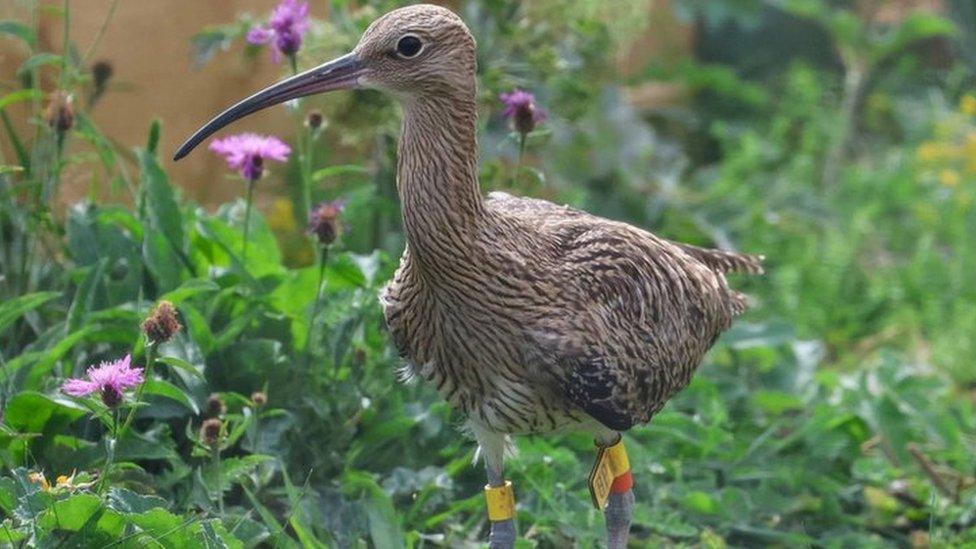Curlews: Cumbria farmer awarded for helping endangered birds
- Published
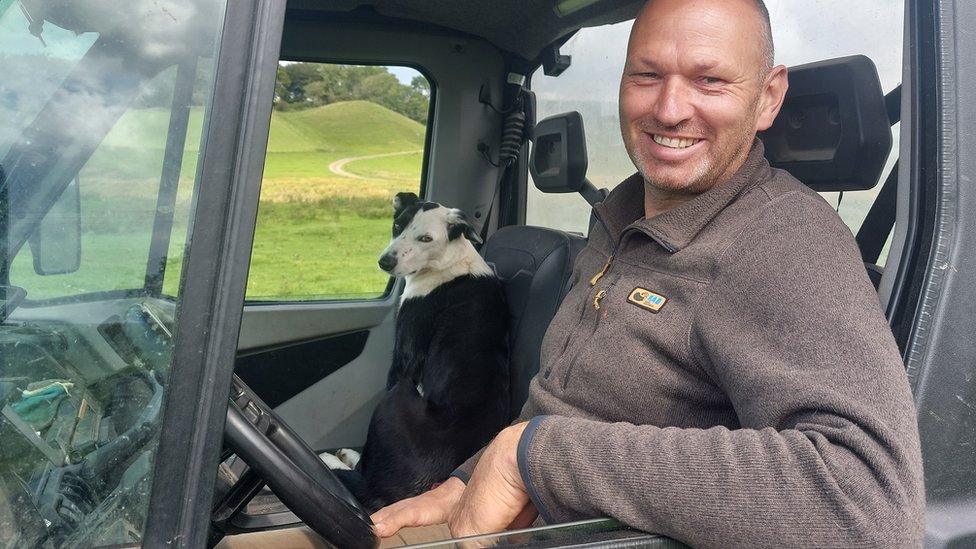
Ian Bell's family have farmed at Hallbankgate since the 1950s
A farmer has won an award for helping to protect endangered curlews.
Ian Bell, from Hallbankgate near Brampton, Cumbria, created wetland areas to support the wading birds whose numbers have been in steep decline.
Working with the RSPB, whose Geltsdale reserve borders his farm, Mr Bell has changed elements of his land management in order to boost the birds' numbers.
Ian Ryding from the wildlife charity said the work was "crucial to the birds' breeding success".
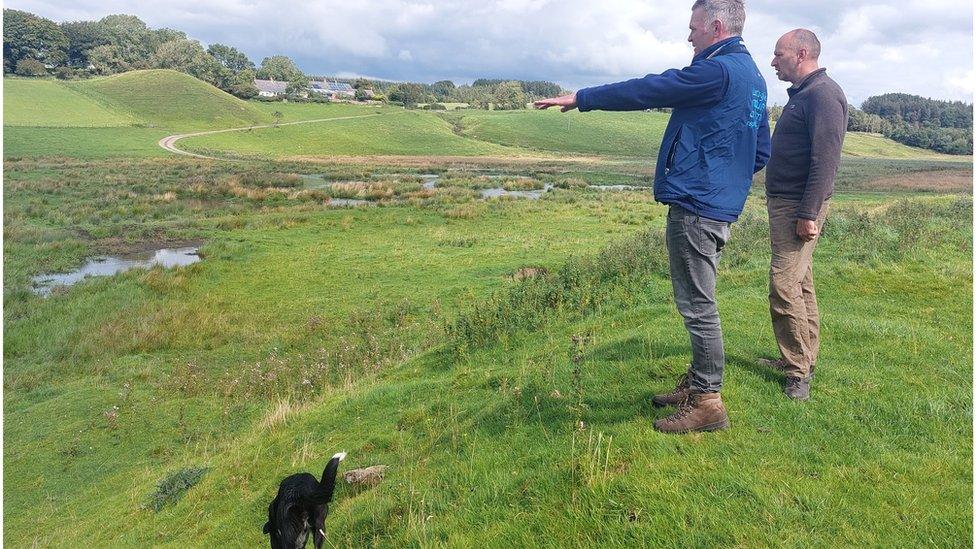
Ian Ryding from the RSPB (left) and Ian Bell worked together to create the habitat
Mr Bell said: "We've hit a balance where we can have all the wildlife and we are also farming properly - it doesn't have to be complete rewilding or land mown every five minutes."
He has collected the RSPB Farmland Curlew Award, as his fields are now home to many nests.
"It's fabulous when they return in spring, everybody is waiting for it.
"Just close to where I am there are three nests and there are more in the other fields," Mr Bell added.
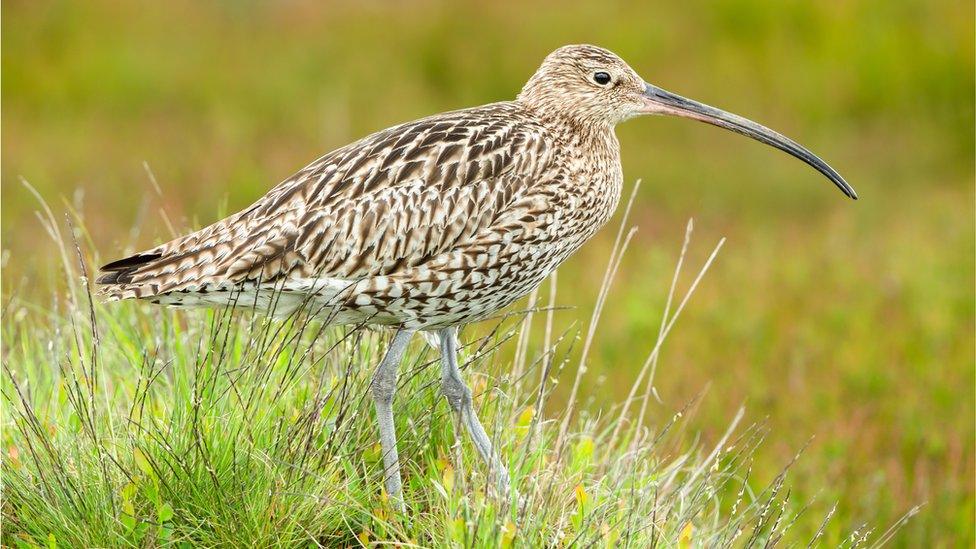
The wading bird has a distinctive long beak and evocative call
Curlews favour rough grasslands, moorlands and bogs as breeding sites.
According to the RSPB, surveys have indicated significant declines in the numbers of the birds in recent decades.
While the majority of the curlews are found in Scotland and northern England, across the UK populations plunged by 42% between 1995 and 2008.
Their numbers have declined because of agricultural intensification - such as drainage, cutting and reseeding.
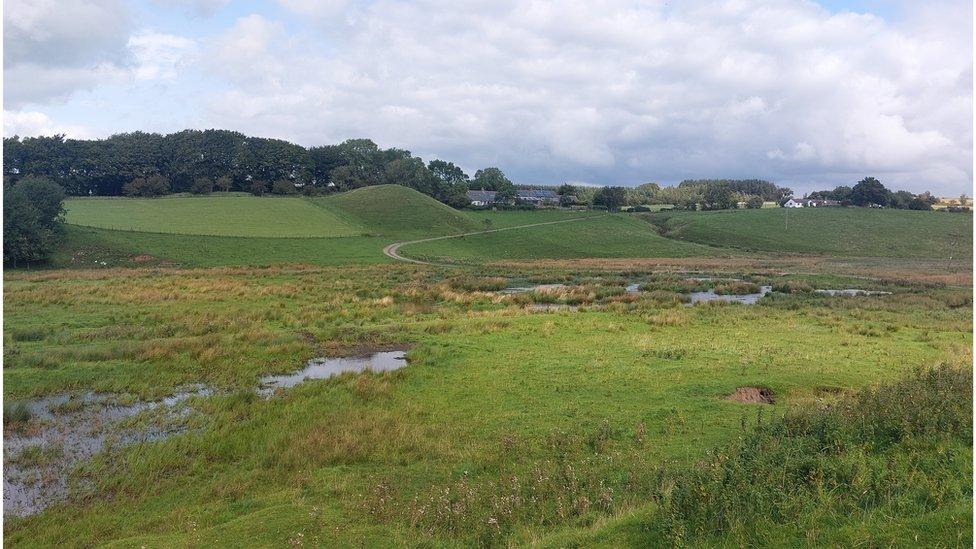
Upland farms with blanket bogs provide ideal conditions for breeding curlews
RSPB warden Mr Ryding said: "The majority of curlews breed on farmland so farmers are crucial to their breeding success, so anything they can do to help curlews breed successfully is just so beneficial for the species.
"Here juvenile curlews collect by the ponds, so wet features on farms are crucial for the survival of chicks."
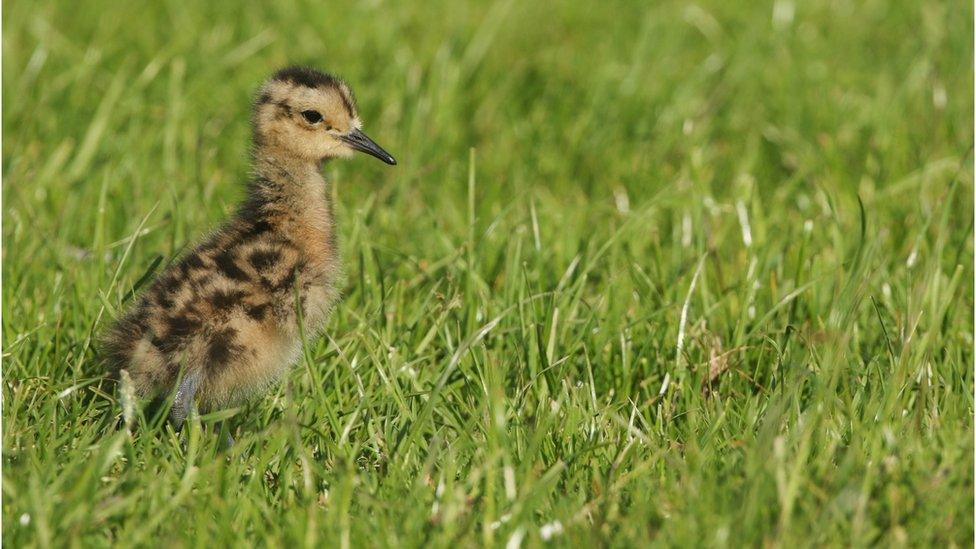
Curlews return to Ian Bell's farm every spring to breed and produce chicks

Follow BBC North East & Cumbria on Twitter, external, Facebook, external and Instagram, external. Send your story ideas to northeastandcumbria@bbc.co.uk, external.
Related topics
- Published5 July 2023
- Published4 May 2023
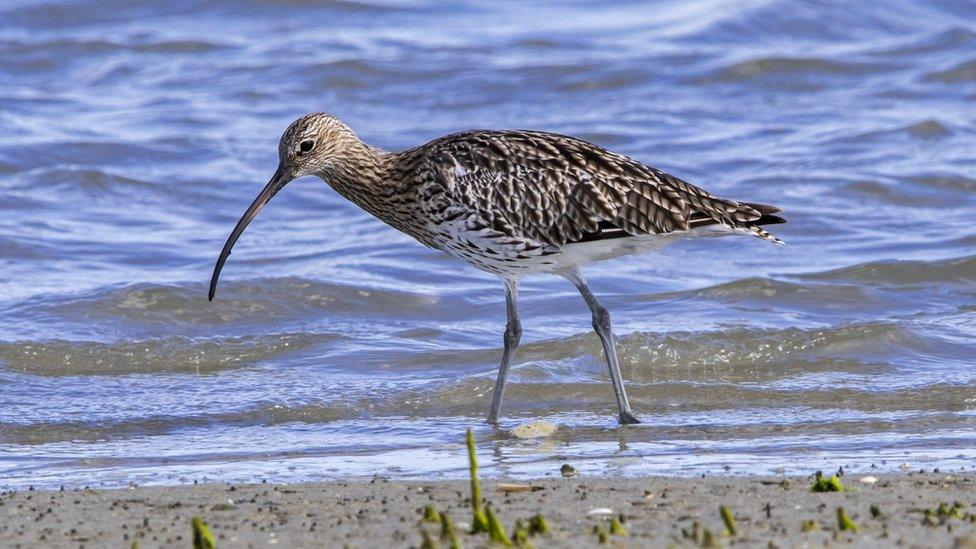
- Published24 August 2022
